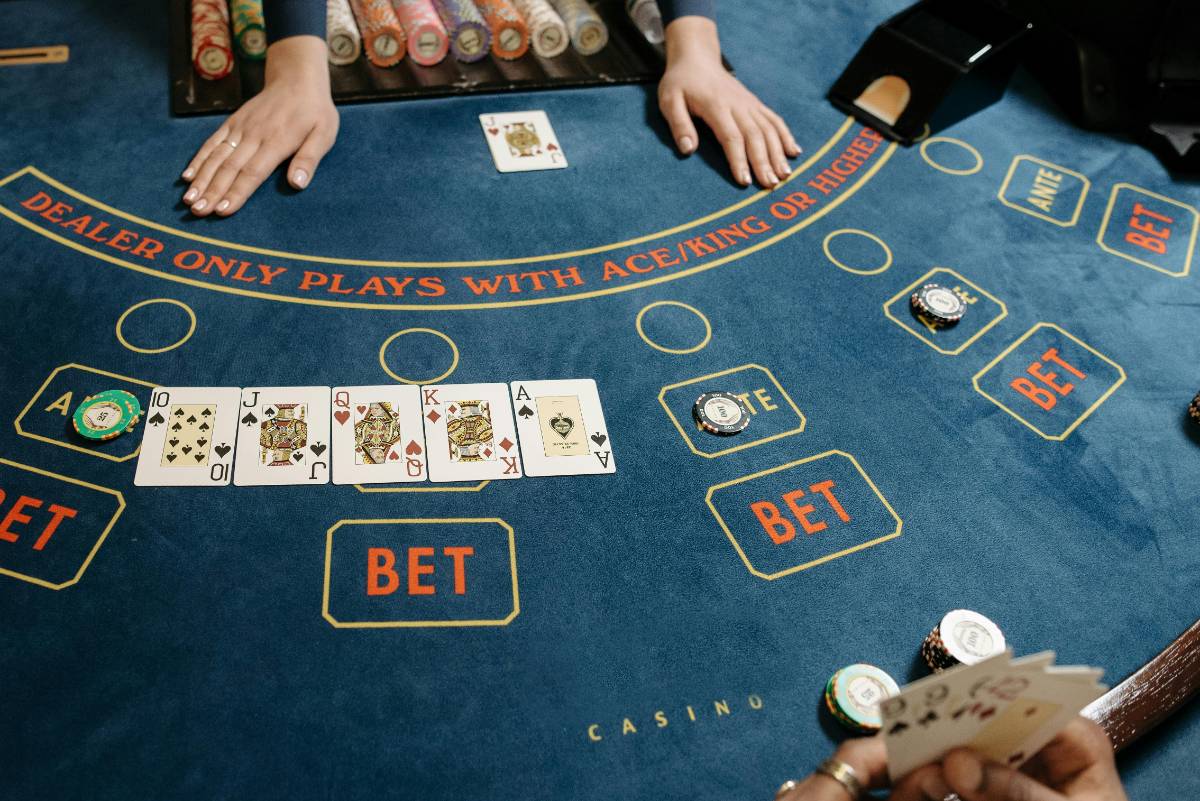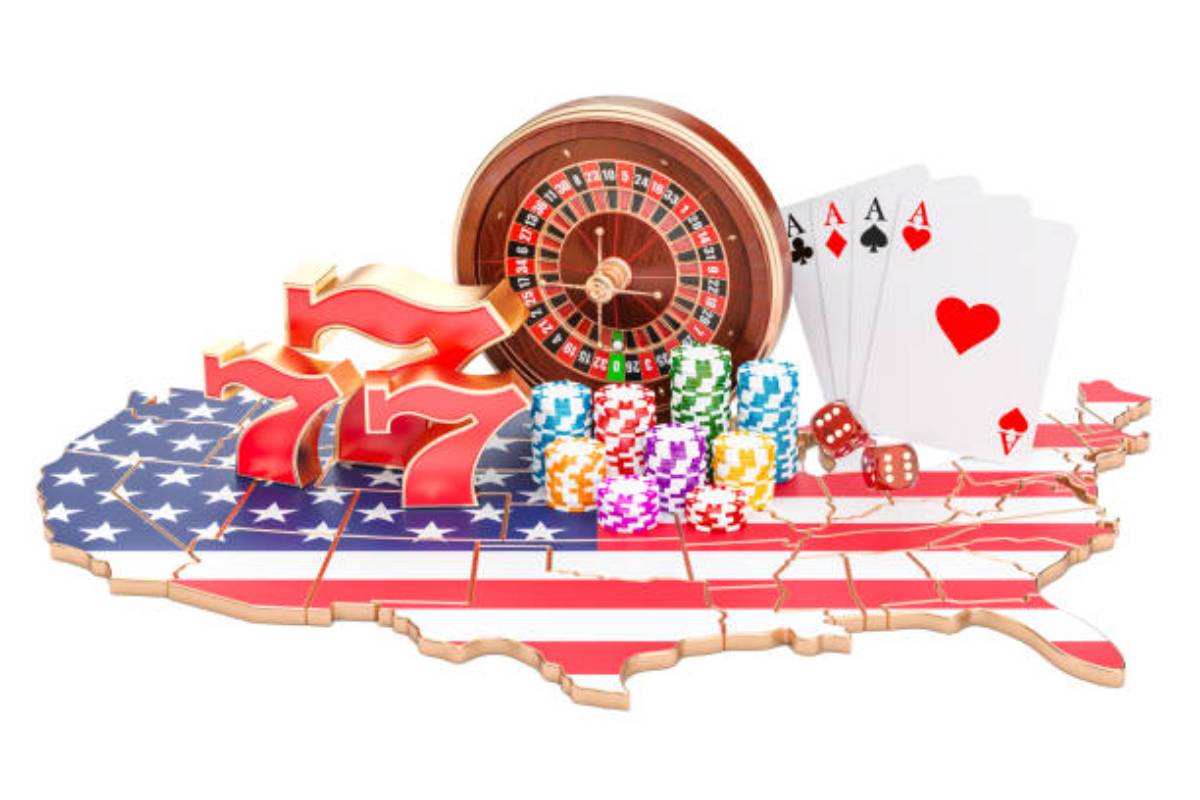
***American Roulette: Features and Gameplay
By Anita Singh · 06 Oct 2025
Roulette is one of the most iconic and recognizable casino games in the world, but not all roulette wheels are created equal. Two versions dominate the global gambling scene: American Roulette and European Roulette. While both share the same thrilling gameplay of spinning a wheel and betting on outcomes, they differ in design, odds, and player experience. In the United States, where gambling culture is deeply tied to Las Vegas and Atlantic City, American Roulette has historically reigned supreme. However, with the rise of online casinos, U.S. players now have more access than ever to European Roulette as well. This raises the question: which version do American players actually prefer in 2025? To answer that, we need to dive into their history, mechanics, house edges, player psychology, and cultural influence.
The Historical Background of Roulette in AmericaRoulette originated in 18th-century France, inspired by Blaise Pascal’s experiments with perpetual motion. The early wheels had both single zero and double zero pockets, but European casinos eventually phased out the double zero, creating what is now known as European Roulette. When the game crossed the Atlantic in the 19th century, American casinos deliberately brought back the double zero, giving birth to American Roulette. The addition of the 00 increased the house edge, making the game more profitable for operators. This version became a fixture in Las Vegas, Atlantic City, and other U.S. gambling hubs. For decades, American players grew accustomed to the double-zero wheel, cementing it as the “standard” roulette in the United States.
American Roulette: Features and GameplayAmerican Roulette wheels have 38 pockets: numbers 1–36, plus a single zero (0) and a double zero (00). This additional green pocket creates higher odds in favor of the casino. The layout of the betting table also reflects this difference, with special bets tied to the double zero. Gameplay is simple and identical in format to European Roulette: players place bets on single numbers, groups of numbers, or characteristics like red/black or odd/even, then the dealer spins the wheel and releases the ball. The presence of the double zero, however, changes the probabilities and payouts, tilting them slightly more toward the house.
European Roulette uses a 37-pocket wheel: numbers 1–36 plus a single zero (0). Without the double zero, the odds improve significantly for players, resulting in a house edge of 2.7% compared to 5.26% in American Roulette. The table layout is slightly different as well, particularly with the “call bets” or “announced bets” that are more common in European play. These bets cover specific sections of the wheel, like Voisins du Zéro, Tiers du Cylindre, and Orphelins, adding a strategic layer often appreciated by experienced gamblers. European Roulette is widely regarded as the “fairer” version, which explains its popularity in Europe and in international online casinos.
The key distinction between the two versions lies in mathematics. In American Roulette, the double zero increases the house edge to 5.26%. For every $100 wagered over time, players statistically lose $5.26. In European Roulette, the house edge drops to 2.7%, meaning players lose only $2.70 per $100 wagered. While this may seem like a small difference, it has a massive impact over long gaming sessions. For professional gamblers and strategy-focused players, the European wheel is the clear choice. Casual players in the U.S., however, often overlook this detail, focusing instead on the thrill and familiarity of the American version.
Why American Roulette Dominates U.S. CasinosThe dominance of American Roulette in U.S. casinos is not accidental. Casino operators prefer it because the higher house edge ensures greater profitability. Over decades, players have come to associate the double-zero wheel with the glamour of Las Vegas. In fact, for many tourists, playing American Roulette is part of the quintessential Vegas experience. Casino marketing, Hollywood films, and cultural imagery have reinforced this preference. For instance, when you picture a tuxedo-clad gambler dramatically pushing chips onto a number in a Vegas movie scene, chances are the wheel shown is American Roulette.
The Online Casino Revolution: European Roulette Enters the U.S. MarketWith the expansion of online gambling in the United States, European Roulette has made major inroads. Most online platforms offer both American and European versions, giving players the freedom to choose. Unsurprisingly, many U.S. players are now gravitating toward European Roulette after discovering its better odds. Live dealer games streamed from European studios often feature single-zero wheels, exposing American gamblers to a version that was once hard to find in physical U.S. casinos. This shift has created a fascinating divide: while traditional brick-and-mortar players still prefer American Roulette, online players increasingly lean toward the European variant.
Psychological Factors: Familiarity vs. ValueAmerican players’ preferences often come down to psychology. Many older players stick with American Roulette simply because it’s what they’ve always known. The visual layout, the double zero, and the cultural association with Vegas create a sense of nostalgia and authenticity. On the other hand, younger and more tech-savvy players, who tend to research odds and strategies online, are more likely to favor European Roulette. For them, the appeal lies in maximizing value and minimizing losses. This generational divide highlights how personal experience and knowledge shape preferences between the two versions.
The Impact of Strategy on PreferencesRoulette is largely a game of chance, but players often bring strategies to the table, such as the Martingale, Fibonacci, or Labouchere systems. These strategies tend to perform better with lower house edges, making European Roulette the more logical choice. For example, doubling down after losses (the Martingale) is less punishing when the house edge is 2.7% rather than 5.26%. American Roulette, with its higher edge, makes these systems riskier in the long run. Players who value strategy and bankroll management tend to prefer European Roulette, while those focused on short-term thrills may stick with the American wheel.
Culture also plays a huge role in preference. American Roulette is tied to the image of Las Vegas, with its neon lights, casino floors, and Hollywood portrayals. European Roulette, meanwhile, is associated with Monte Carlo, sophistication, and high-class European casinos. American players often choose based on the atmosphere they want to emulate. Tourists in Las Vegas are likely to play American Roulette for the full experience, while online players who dream of European elegance may gravitate toward the single-zero version. This cultural distinction ensures that both versions will continue to coexist in the American gambling market.
Future Trends: Which Version Will Dominate?Looking ahead, the U.S. market is unlikely to see one version completely replace the other. American Roulette will remain the dominant choice in physical casinos, where tradition and familiarity matter most. European Roulette, however, will continue to gain traction in the online sphere, where informed players seek better odds. Hybrid offerings may also emerge, with some U.S. casinos introducing European wheels to appeal to high rollers and international tourists. By 2030, we may see a more balanced presence of both versions, with players freely switching depending on context—Vegas trips for American Roulette, online play for European Roulette.
ConclusionSo, which version do U.S. players prefer? The answer is both. In physical casinos like Las Vegas and Atlantic City, American Roulette remains king, beloved for its cultural significance and longstanding dominance. Online, however, European Roulette is rapidly growing in popularity thanks to its lower house edge and wider availability. Ultimately, the choice comes down to what players value more: the nostalgic thrill of tradition or the mathematical advantage of better odds. One thing is certain—whether single zero or double zero, roulette will continue to spin its way into the hearts of U.S. players for generations to come.
Subscribe to our newsletter to get our newest articles instantly!

Senior Contributor
Anita Singh is passionate about impactful storytelling. With a unique voice and deep insights, they turn everyday stories into compelling reads that resonate and inform.
Read Full Bio
Betting is an integral part of the gambling experience, but not all bets are created equal. The distinction between smart betting and risky betting can determine whether a player enjoys long-term success or faces repeated losses. Understanding where you stand on this spectrum is essential for anyone looking to improve their gambling strategy and maximize their enjoyment.***What Is Smart Betting?Smart betting involves making informed decisions based on probability, strategy, and careful bankroll management. Players using smart betting techniques focus on understanding odds, choosing bets with favorable risk-reward ratios, and staying disciplined. Examples include placing smaller, calculated bets on even-money options in roulette or using structured strategies like the Martingale or Fibonacci systems responsibly. Smart betting prioritizes consistency and long-term play over chasing big wins.***Characteristics of Risky BettingRisky betting is characterized by impulsive decisions, large wagers, and a reliance on luck rather than strategy. Players may chase losses, place high-stakes bets without proper consideration, or ignore bankroll limits in pursuit of quick gains. While risky betting can occasionally lead to huge wins, it often results in rapid losses and heightened stress. Emotional decision-making and overconfidence are common indicators of risky betting behavior.***Balancing Risk and RewardEvery gambler must decide their comfort level with risk. Smart betting doesn’t eliminate risk, but it manages it effectively. Risky betting, on the other hand, amplifies uncertainty and can quickly deplete funds. Finding a balance involves setting clear limits, understanding probabilities, and maintaining discipline. Diversifying bets and mixing cautious strategies with occasional higher-risk plays can provide excitement while minimizing potential losses.***Bankroll Management: A Key ComponentA crucial difference between smart and risky betting is bankroll management. Smart bettors allocate their funds across sessions, set clear budgets, and avoid chasing losses. Risky bettors often gamble impulsively, betting amounts they cannot afford to lose. Proper bankroll management ensures sustainability, reduces stress, and enhances overall enjoyment of the game.***Psychological FactorsMental discipline is essential for smart betting. Staying focused, avoiding emotional decisions, and knowing when to walk away can prevent risky behavior. Conversely, overconfidence, frustration, or the desire for instant gratification often drive risky betting. Recognizing these psychological triggers helps players make better decisions and enjoy gambling responsibly.***Practical Tips for Smart BettingSet Limits: Decide on a budget and stick to it.Understand Odds: Know the probabilities associated with each bet.Mix Strategies: Combine conservative and occasional higher-risk bets.Take Breaks: Avoid fatigue and emotional decision-making.Reflect: Regularly review your betting history to identify patterns and improve strategies.***ConclusionWhether you lean towards smart betting or risky betting significantly affects your gambling outcomes. Smart betting prioritizes strategy, discipline, and sustainable play, while risky betting focuses on chance and high-stakes thrills. By understanding your tendencies, managing your bankroll, and maintaining a disciplined approach, you can enjoy gambling responsibly while maximizing both fun and potential rewards. Ultimately, knowing where you stand helps you make informed choices and enjoy the game to its fullest.
By John Michael Smith · 10 Oct 2025

Modern casinos rely heavily on technology to ensure the safety and security of both their guests and assets. With millions of dollars changing hands daily and high-profile clientele frequenting these venues, security is paramount. Advanced systems and innovative solutions help casinos prevent fraud, monitor gaming areas, and maintain a safe environment for all patrons. The integration of technology has transformed casino security from a reactive approach to a proactive and intelligent system.***Surveillance Systems and AI MonitoringCasinos use state-of-the-art surveillance systems, often referred to as the "eye in the sky," to monitor every corner of the property. High-definition cameras, coupled with AI-powered monitoring, can detect suspicious behavior, track patterns, and alert security personnel in real time. AI algorithms can identify anomalies, such as unusual betting patterns or repeated attempts at cheating, allowing security teams to intervene before incidents escalate. This technology significantly reduces human error and increases the efficiency of surveillance operations.***Access Control and Biometric AuthenticationModern casinos employ advanced access control systems to restrict entry to sensitive areas such as cash rooms, high-limit gaming tables, and employee-only zones. Biometric authentication, including fingerprint and facial recognition, ensures that only authorized personnel can access these areas. This not only prevents internal theft but also streamlines employee verification processes. By combining physical security with biometric technology, casinos maintain a secure environment without disrupting guest experiences.***Cybersecurity MeasuresWith the rise of online gambling and digital payment methods, cybersecurity has become a critical component of modern casino security. Casinos protect sensitive data, such as customer financial information and gaming records, through encrypted networks and multi-layered firewalls. Regular security audits, intrusion detection systems, and continuous monitoring help prevent cyberattacks. Protecting both digital and physical assets ensures that casinos maintain trust and integrity among their patrons.***Fraud Detection and Gaming AnalyticsTechnology enables casinos to track and analyze gaming patterns to detect potential fraud. Advanced software can monitor card games, roulette, and slot machines to identify irregularities or cheating attempts. By analyzing large volumes of data, casinos can predict suspicious behavior and act proactively. This reduces losses and maintains a fair playing environment for all guests, reinforcing the credibility of the casino.***Emergency Response SystemsModern casinos also incorporate technology to enhance emergency preparedness. Advanced communication networks, alarm systems, and real-time monitoring ensure quick responses to fires, medical emergencies, or security breaches. Some casinos integrate AI-driven crowd management systems to guide guests safely during evacuations. By combining technology with trained personnel, casinos can respond efficiently to emergencies, minimizing risk and ensuring guest safety.***ConclusionTechnology plays a vital role in the modern casino industry by providing comprehensive security solutions that protect assets, prevent fraud, and ensure guest safety. From AI-powered surveillance and biometric access controls to cybersecurity measures and gaming analytics, these innovations allow casinos to maintain secure and fair environments. As technology continues to advance, casinos will increasingly rely on intelligent systems to enhance both safety and the overall guest experience.
By Stefen · 12 Oct 2025

Every casino game has a built-in mathematical advantage for the house, and roulette is no exception. In American Roulette, the house edge is one of the defining features of the game. It directly influences both the casino’s profitability and a player’s chances of winning. But what exactly is the house edge, and how is it calculated in American Roulette? Understanding this can help players make smarter decisions at the table.***Understanding the Concept of House EdgeThe house edge represents the long-term percentage of every wager that the casino expects to keep as profit. It’s essentially the price players pay to enjoy the game. In American Roulette, this house edge comes from the extra green slot—the double zero (00)—which increases the casino’s advantage compared to European Roulette.***How American Roulette Is StructuredAn American Roulette wheel has 38 slots: numbers 1 through 36, plus a single zero (0) and a double zero (00). Players place bets on where they think the ball will land. Payouts are structured as if the wheel had only 36 numbers, but the two extra slots give the casino its edge.***Calculating the House EdgeLet’s consider a straight-up bet, where a player wagers on a single number. The payout is 35 to 1, but the true odds of hitting a single number on an American Roulette wheel are 1 in 38. This creates a gap between the payout odds and the actual odds, and that difference is where the house edge comes from.For American Roulette, the house edge is approximately 5.26%. This means that, over time, the casino expects to keep about $5.26 for every $100 wagered on the game. It doesn’t guarantee that an individual player will lose this percentage in a single session, but across thousands of spins, this is the expected outcome.***Special Bets and Variations in EdgeWhile most bets in American Roulette carry the same 5.26% edge, there’s one exception—the “Five Number Bet,” which covers 0, 00, 1, 2, and 3. This particular wager has a house edge of 7.89%, making it the least favorable bet on the table. Experienced players often avoid it in favor of bets that keep the edge closer to the standard rate.***Why Casinos Favor American RouletteThe higher house edge is one of the main reasons casinos in Las Vegas and across the U.S. prefer American Roulette over the European version. With a 2.7% edge, European Roulette is better for players, but American Roulette offers casinos nearly double the advantage. This balance of excitement and profitability explains why the double-zero wheel is a permanent fixture in U.S. casinos.***What It Means for PlayersFor players, the house edge is a reminder that roulette is primarily a game of chance. No betting system can overcome the mathematical advantage that the casino holds. However, knowing the edge allows players to manage their expectations, choose bets more wisely, and enjoy the game for its entertainment value rather than as a guaranteed way to win money.***ConclusionThe actual house edge in American Roulette is 5.26% for most bets, with the exception of the five-number bet, which climbs to 7.89%. This advantage, built into the wheel through the addition of the double zero, is what ensures the game remains profitable for casinos while still delivering thrills to players. By understanding how the edge works, gamblers can approach American Roulette with greater awareness, making the experience more enjoyable and informed.
By Stefen · 28 Sep 2025

The online casino industry has always embraced technology to enhance player experiences, and the future of online roulette looks particularly exciting with the integration of Virtual Reality (VR) and Artificial Intelligence (AI). These cutting-edge innovations are set to transform the way players interact with the game, creating immersive, personalized, and highly engaging environments that were once unimaginable.***Virtual Reality: Immersive Roulette ExperiencesVR technology allows players to step into a virtual casino from anywhere in the world. Using VR headsets, players can walk around realistic casino environments, approach roulette tables, and interact with live dealers and other players in real time. This level of immersion makes the online experience feel as authentic as visiting a physical casino, bringing the sights and sounds of the wheel to life. VR also opens possibilities for themed roulette tables, adding creativity and excitement to traditional gameplay.***Artificial Intelligence: Personalized and Smarter GamingAI is transforming online roulette by analyzing player behavior and preferences to offer personalized experiences. For example, AI can suggest betting strategies, identify patterns in gameplay, and provide tailored recommendations to enhance engagement. Moreover, AI-driven chatbots and virtual dealers can interact naturally with players, creating a more dynamic and responsive gaming environment. This integration ensures that the game adapts to individual players, making each session unique and engaging.***Benefits for Players and CasinosFor players, VR and AI offer heightened realism, interactive gameplay, and personalized guidance that can improve enjoyment and learning. For casinos, these technologies attract new audiences, increase engagement, and provide valuable insights into player behavior. Together, they create a more captivating and intelligent ecosystem that benefits both sides.***Challenges and ConsiderationsDespite the excitement, integrating VR and AI comes with challenges. VR requires powerful hardware and stable internet connections, which can limit accessibility for some players. AI systems must balance personalization with fairness, ensuring that player experience enhancements do not compromise game integrity. Developers also need to address privacy concerns when analyzing player data to maintain trust.***The Road AheadAs technology continues to evolve, the future of online roulette will likely blend VR and AI to create experiences that are more immersive, interactive, and player-centric than ever before. We may see multi-player VR roulette rooms, AI-guided tutorials, and highly adaptive game interfaces that respond to a player’s mood and style. This technological evolution promises to redefine online gambling, making it smarter, more engaging, and increasingly realistic.***ConclusionThe fusion of VR and AI is poised to revolutionize online roulette, offering players experiences that combine the thrill of a real casino with the advantages of digital innovation. As these technologies mature, online roulette will become more immersive, interactive, and personalized, transforming not just how we play, but how we perceive the game itself. Players and casinos alike stand to benefit from this exciting evolution, marking a bold new era in the world of online gambling.
By Abraham Benjamin · 13 Oct 2025